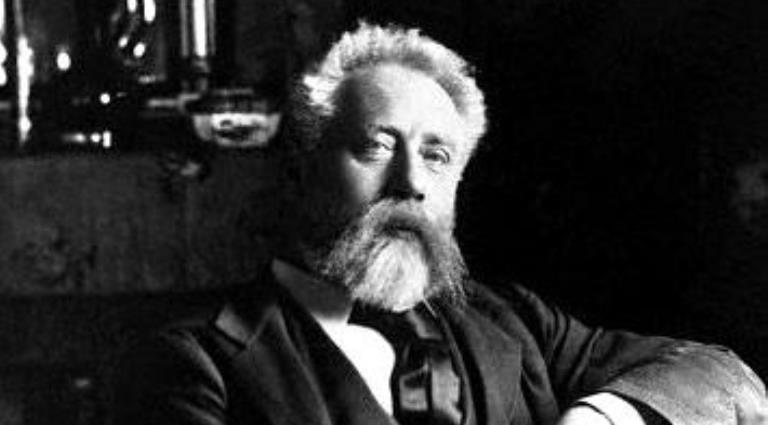
Thursday
In two recent guest posts (here and here), Radnor High School English teacher Carl Rosin describes his students wrestling with two well-known poems that were cited by the Christchurch mass murderer in his justification. One issue is how much leeway a reader has in interpreting a poem. In his students’ responses, Carl mentions some disagreement over whether or not the murderer misinterpreted William Ernest Henley’s “Invictus” (1875).
Oscar Wilde, when cross-examined by the court that would eventually sentence him to two years of hard labor, said that he was not responsible for what people took away from Picture of Dorian Gray. While I think this is generally correct given all the strange readings that works elicit, I argue today that “Invictus” does bear some responsibility for its use by the Christchurch killer—and also by Oklahoma City bomber Timothy McVeigh, who cited it immediately before his execution. I say this even while acknowledging that Nelson Mandela made positive use of it during his 27 years in prison.
“Invictus” may be memorable but it has some serious flaws, among which is a basic misunderstanding of soul. When the poet talks of his “unconquerable soul” and later says that he is “captain of my soul” (this repetition is also a problem), we must necessarily ask what he means by this. Is a soul something that one captains?
The Faustus story grapples with this question, with Marlowe’s and then Goethe’s control-freak hero thinking he can “sell his soul” to get whatever he desires. In other words, he regards the soul as a thing that can be bought and sold. We learn, however, that soul is not subject to mastery. The soul is our inner divinity, that which is most precious and integral to us. We can close our ears and harden our hearts to its call, but the soul itself is beyond any act of will on our part.
For instance, Marlowe’s Faustus is all but told that he never sold his soul and that he has but to open his heart to God to get back in touch with it. As the old man puts it at the end of the play,
I see an angel hovers o'er thy head,
And, with a vial full of precious grace,
Offers to pour the same into thy soul:
Then call for mercy, and avoid despair.
Faustus, however, is unwilling to relinquish control. He would rather die an agonizing death.
When Henley talks of soul, I think he’s really speaking of dignity and self-esteem. His sentiment is closer to the lyrics of Whitney Houston’s “The Greatest Love”:
If I fail, if I succeed At least I'll live as I believe No matter what they take from me They can't take away my dignity…
This is what Mandela heard in Henley’s poem, and it’s great that he felt bolstered. But Mandela was far better served by the other authors he read in prison: Shakespeare, Tolstoy, Dickens and Sophocles. “Invictus” gave him a bumper sticker slogan but these other works helped him understand the human dramas that he was enmeshed in.
Henley wrote “Invictus” after having undergone an amputation and a complicated surgery, and as with Mandela one doesn’t want to critique him for infelicitous phrasing that comforted him. Those of us who come after, however, can observe that the poem does not explore soul. It’s more about the triumph of the will:
Out of the night that covers me Black as the pit from pole to pole, I thank whatever gods may be For my unconquerable soul. In the fell clutch of circumstance, I have not winced nor cried aloud. Under the bludgeonings of chance My head is bloody, but unbow’d. Beyond this place of wrath and tears Looms but the Horror of the shade, And yet the menace of the years Finds, and shall find me, unafraid. It matters not how strait the gate, How charged with punishments the scroll, I am the master of my fate: I am the captain of my soul.
That Henley could speak with such ringing confidence is in part because he was a citizen of a nation that used such language while conquering the world. Mastery was in the air so the idea of captaining his soul came naturally.
I’ve written previously of similarities between “Invictus” and Tennyson’s “Ulysses” (1833), especially the final lines, “Made weak by time and fate, but strong in will/ To strive, to seek, to find, and not to yield.” Stirring though the lines may be, they are problematic given that Tennyson is echoing Milton’s Satan:
What though the field be lost? All is not lost—the unconquerable will And study of revenge, immortal hate, And courage never to submit or yield . . .
Tennyson recognizes that there’s something Satanic in Ulysses’s drive. Not man enough to govern Ithaca, which he relegates to a son whom he regards as soft, he will sacrifice his crew to satisfy his restless striving. Unlike Henley, Tennyson sees the dark side of heroic individualism.
In other words, there’s a reason why murderous monomaniacs are drawn to “Invictus,” just as there’s a reason why they are drawn to the works of Ayn Rand. While they fantasize dominating “the bludgeonings of chance,” in their mind such bludgeoning consists of–not painful surgeries–but the disrespect of women, liberals, Muslims, Jews, and people of color.
Think of this next time you read “Invictus.”